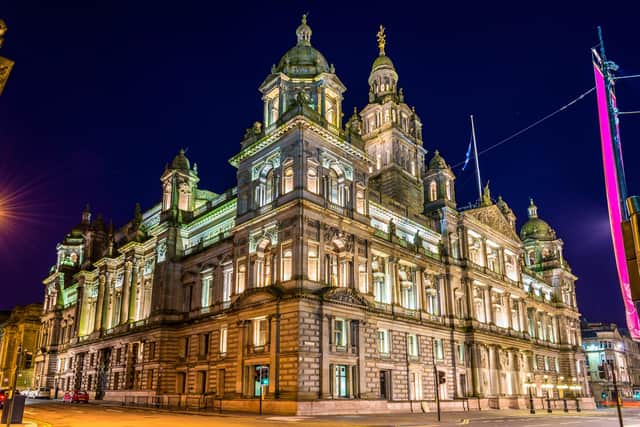Report outlines scale of links to slave trade across Glasgow's streets and statues
This article contains affiliate links. We may earn a small commission on items purchased through this article, but that does not affect our editorial judgement.
The report, undertaken by historian Dr Stephen Mullen who delivered a similar report to the University of Glasgow, was handed to councillors on Friday evening.
It is the result of several years of work – delayed by the pandemic – which aimed to chronicle the links, both direct and “associational”, Glasgow has to the slave trade.


Advertisement
Hide AdAdvertisement
Hide AdThe report found at least 11 mansions and urban buildings in Glasgow are connected to individuals involved with Atlantic slavery.
A further eight individuals with connections to the slave trade are commemorated across multiple monuments in the city.
Dr Mullen wrote: “It seems surprising that none of Glasgow’s most famous colonial merchants are represented in the city’s civic space.
"There is no evidence that any ‘tobacco lords’ or ‘sugar aristocracy’ were commemorated in monuments or statues.”
In total, 62 streets have links to the slave trade, the report states.
Of these, 43 have direct links to individuals who were involved with the slave trade, with 19 with “associational” links.
Dr Mullen wrote: “There is only one known example of a street named after a trafficker in Black people (James Watt Street). Atlantic merchants feature more prominently.
"The names Buchanan, Glassford, Ingram, Cochrane, Speirs are synonymous with Glasgow, Atlantic slavery and tobacco, and are commemorated in city centre streets and Speirs Wharf.
Advertisement
Hide AdAdvertisement
Hide Ad"It is now apparent that West India merchants are also prominent in Glasgow’s streetscape – Gordon Street and Robertson Street being key examples.”
The report also found Glasgow Town Council, the predecessor to the current local authority, was gifted the equivalent of at least £5.5 million by those with links to the slave trade.
This figure is based on the relative price worth, compared against the retail price index. However, when compared to average wages, the donations would be worth £84.1m today.
Compared against gross domestic product, the gifts would be worth £322m in today’s money.
All three methods of understanding the value of the gifts are legitimate, the report said, underlying the scale of the gifts.
Dr Mullen’s study also found funding for the construction of the City Chambers in the 1880s was derived from taxpayers. However, the construction involved borrowing from banks, which had previous links to the slave trade.
The council also invested the equivalent of £4m in the “state sanctioned colonial scheme” Company of Scotland, which trafficked enslaved people from Madagascar.
In total, 40 out of 79 individual Lord Provosts nominated to the council between 1636 to 1834 had some connection to Atlantic slavery, with some sitting in office while owning enslaved people.
Advertisement
Hide AdAdvertisement
Hide AdIn 1759, Robert Dinwiddie, a personal enslaver and lieutenant governor of Virginia, was loaned £1,500 by the town council.
Glasgow Corporation and the City Council received non-monetary gifts from enslavers such as Cecilia Douglas’s art collection, as well as buildings formerly owned by those involved with West India commerce, the report states.
Next steps for the council on how to respond to the report will be taken after the May council elections, it is understood.
Want to hear more from The Scotsman's politics team? Check out the latest episode of our political podcast, The Steamie.
It's available wherever you get your podcasts, including Apple Podcasts and Spotify.
A message from the Editor:
Thank you for reading this article. We're more reliant on your support than ever as the shift in consumer habits brought about by coronavirus impacts our advertisers.
If you haven't already, please consider supporting our trusted, fact-checked journalism by taking out a digital subscription.
Comments
Want to join the conversation? Please or to comment on this article.

